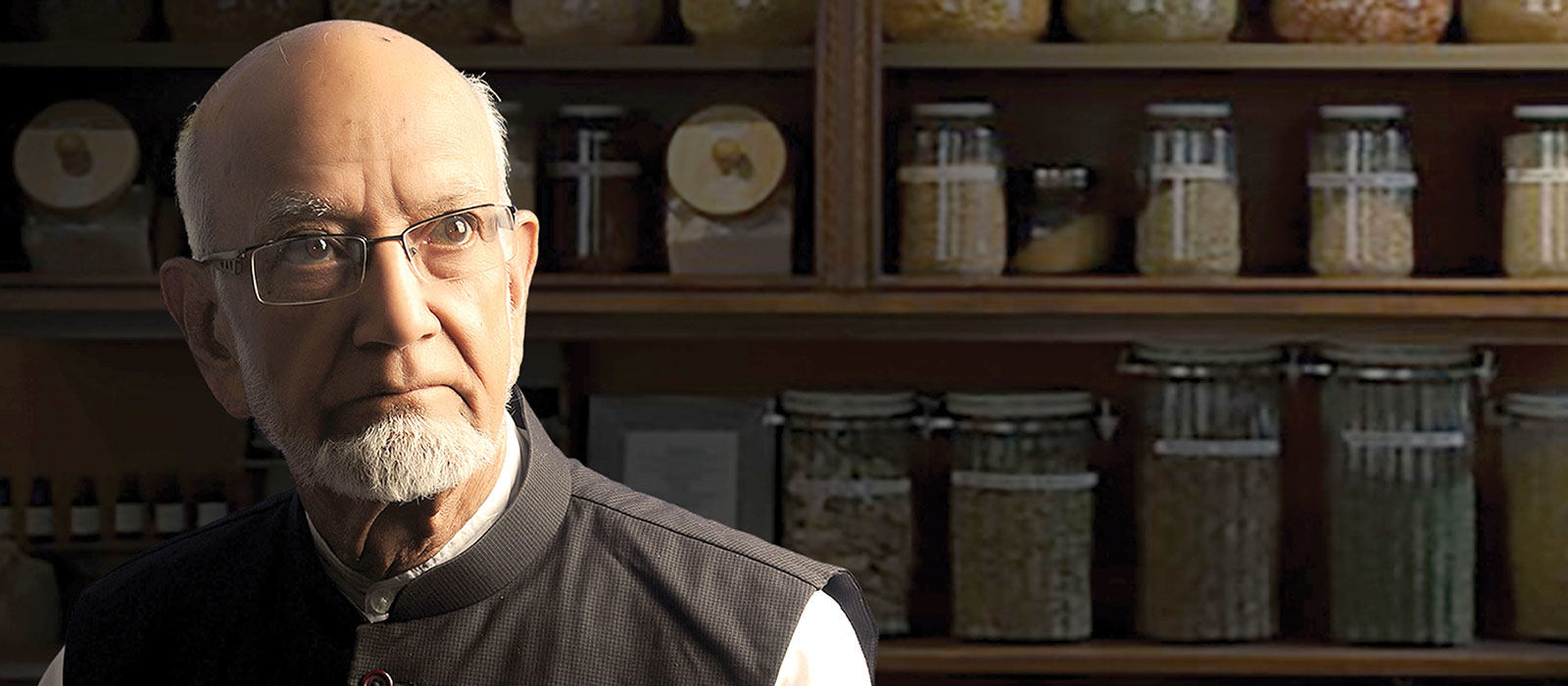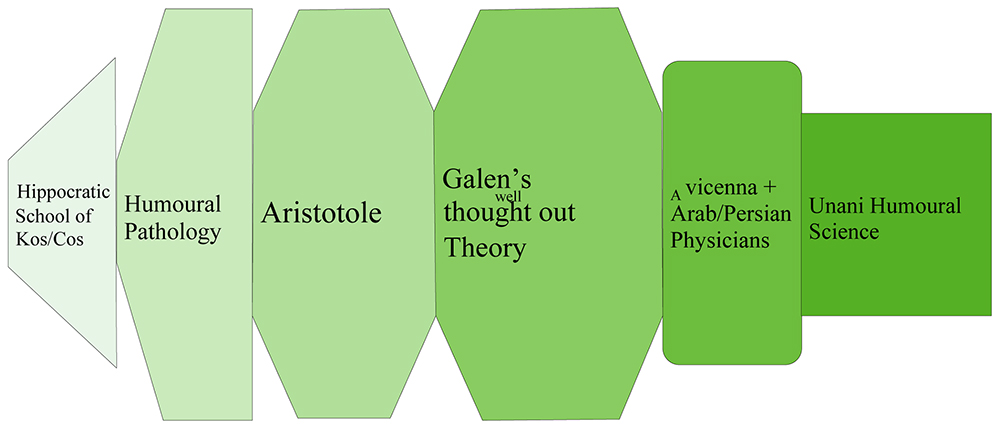
Unani Medicinal System
The Unani medicinal system has been understood as a holistic system of medicine, as it incorporates mental, emotional, spiritual, physical and environmental causes of ill health (Ali, Islam, & Alam, 2007).
Although Western medicine can link illnesses to particular bodily organs or systems, Unani treatments rely on understanding how different organs and systems of the body influence and impact each other. Thus, practitioners tend not to specialise in cardiology or abdomen health, for example, but rather focus on the body as a whole. Moreover, Unani medicine is a system of medicine from South Asia that is rooted in diagnosis and treatment based on understanding the four senses of “humor” of the body: dam (blood), balgham (phlegm), safra (yellow bile), and sawda (black bile) (Rahman, Ali, Zulkifle, & Ahmad, 2014). In Unani, each individual retains a unique mixture of these humor and elements, which can then determine temperament. Through treatment and diagnosis, Hakeems can keep patients’ temperaments internally balanced, which creates good health (Azmi, 1995).
The “Allopathic” or modern medicinal system is rooted in the ancient practices of Greek physicians and scientists (Porter, 2001), as shown in Figure 1. When molecular technology and germs theory disease penetrated modern society, the qualitative or holistic manner of treating the human mind, body and diseases was no longer practised as before. Characteristics of the Hippocratic approach, such as compassionate sympathy for patients, individualised management, humoral pathology and the individual temperamental approach, shifted severely because of the rapid growth of a scientific assessment of the human body rather than a qualitative one.

In addition to the Federal B Area branch,we have recently opened a new branch in Badar Commercial, DHA Phase 5.
حکیم مرسلین ہربل اسٹور اور دواخانہ کی فیڈرل بی ایریا بلاک 13 برانچ کے علاوہ اب
بدر کمرشل فیز 5 میں بھی ایک برانچ کھل چکی ھے DHA
